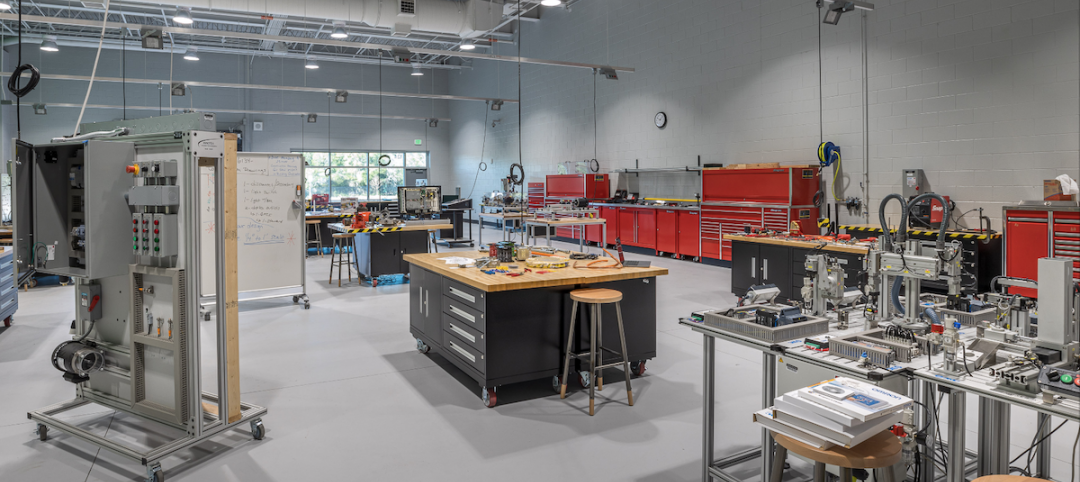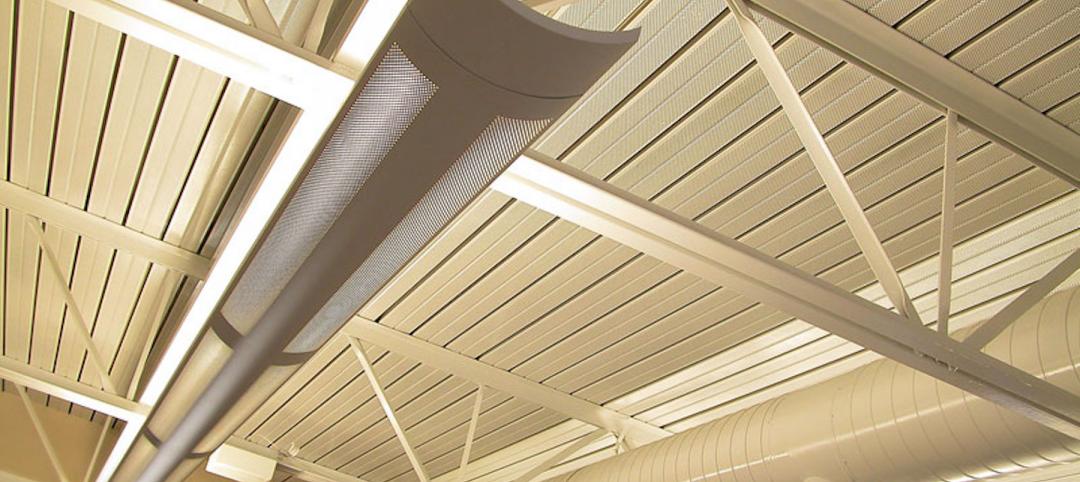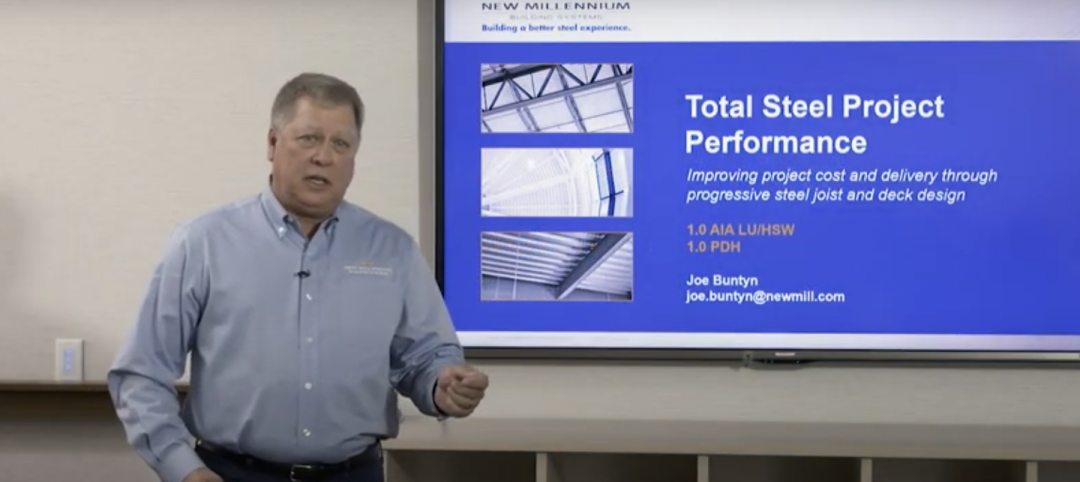‘For the people who were mentioning the fear from Silicon Valley. I am Silicon Valley. Get over the fear. Silicon Valley has already stepped into construction, and I am part of it.’
AEC technophile Rohit Arora—who joined the design-build startup Katerra in April as a Product Excellence engineer—put his thoughts on AEC tech innovation quite bluntly at BD+C’s Accelerate Live! conference this past May. But it needed to be said.
Talk after talk at the event referenced the AEC market’s ongoing angst about a tech-industry takeover of AEC, with traditional companies getting squeezed out by hotshot VC-backed startups and enterprising design and construction firms. Arora’s advice for the traditionalists: “Embrace technology. Do not fear. You can shape it.”
I don’t need to tell you about the profound impacts that technological advancements are having on architecture, engineering, and construction. However, I suggest that the pace of innovation and the rate of tech adoption by AEC firms have taken on a Moore’s law-like stride.
This past April, while attending an industry event targeted at GCs and subcontractors, I sat in on a two-hour breakout session focused solely on disruptive construction technologies (yes, 120 minutes!). The speaker, a well-known AEC technology expert, flipped through slide after slide—well more than 60 slides in all—each with a specific technology tool or application, and how construction firms are utilizing the innovation. Labor tracking, BIM/VDC optimization, multi-user VR coordination, indoor drones, rules-based clash detection, exoskeletons, smart tools, 360 cameras for creating detailed 3D models, and AI for everything from construction scheduling to language translation on the jobsite. The applications went on and on, and that talk was just for construction companies. The speaker could easily put together a two-hour talk on emerging tech for architects. And one for engineers. And one for building owners and facilities professionals.
And based on the amount of venture capital funding that is flooding into the commercial construction field, two hours may no longer be enough to cover emerging technologies. JLL, in a new report, found that VC firms invested a record $1.05 billion in construction technology startup companies during the first half of 2018. That is nearly 30% more VC funding than during the same period in 2017, and it adds to the more than $3 billion in funding since 2009, across 478 construction technology deals.
In my nearly two decades covering commercial construction, there has never been a more compelling time to report on this $500 billion industry. On one hand, it’s exhilarating to see the incredible opportunities that lie ahead for enterprising firms. On the other hand, I empathize with firms that are struggling to keep up.
Related Stories
Sponsored | BD+C University Course | Apr 1, 2022
Video surveillance systems for multifamily housing projects
This introductory course provides detailed technical information and advice from security expert Michael Silva, CPP, on designing a video surveillance system for multifamily housing communities – apartments, condominiums, townhouses, or senior living communities. Technical advice on choosing the right type of cameras and optimizing the exterior lighting for their use is offered.
K-12 Schools | Apr 1, 2022
Charleston County’s award-winning career and technical education high school
BD+C Executive Editor Rob Cassidy talks with the team behind the award-winning Cooper River Center for Advanced Studies, a Career|Technical Education high school in Charleston County, S.C.
Modular Building | Mar 31, 2022
Rick Murdock’s dream multifamily housing factory
Modular housing leader Rick Murdock had a vision: Why not use robotic systems to automate the production of affordable modular housing? Now that vision is a reality.
Contractors | Mar 28, 2022
Amid supply chain woes, building teams employ extreme procurement measures
Project teams are looking to eliminate much of the guesswork around product availability and price inflation by employing early bulk-purchasing measures for entire building projects.
Contractors | Mar 23, 2022
Hiring Construction Workers in a Frantic Post-Covid Job Market
McCarthy Building Companies' Director of Talent Acquisition, Ben Craigs, discusses the construction giant's recruitment and training strategies in a hyper-competitive market. Craigs sits down with BD+C Senior Editor John Caulfield.
Sponsored | BD+C University Course | Jan 30, 2022
Optimized steel deck design
This course provides an overview of structural steel deck design and the ways to improve building performance and to reduce total-project costs.
Urban Planning | Jan 25, 2022
Retooling innovation districts for medium-sized cities
This type of development isn’t just about innovation or lab space; and it’s not just universities or research institutions that are driving this change.
Sponsored | Resiliency | Jan 24, 2022
Norshield Products Fortify Critical NYC Infrastructure
New York City has two very large buildings dedicated to answering the 911 calls of its five boroughs. With more than 11 million emergency calls annually, it makes perfect sense. The second of these buildings, the Public Safety Answering Center II (PSAC II) is located on a nine-acre parcel of land in the Bronx. It’s an imposing 450,000 square-foot structure—a 240-foot-wide by 240-foot-tall cube. The gleaming aluminum cube risesthe equivalent of 24 stories from behind a grassy berm, projecting the unlikely impression that it might actually be floating. Like most visually striking structures, the building has drawn as much scorn as it has admiration.
Engineers | Jan 12, 2022
Private equity: An increasingly attractive alternative for AEC firm sellers
Private equity firms active in the AEC sector work quietly in the background to partner with management, hold for longer periods, and build a win-win for investors and the firm. At a minimum, AEC firms contemplating ownership transition should consider private equity as a viable option. Here is why.
Sponsored | BD+C University Course | Jan 12, 2022
Total steel project performance
This instructor-led video course discusses actual project scenarios where collaborative steel joist and deck design have reduced total-project costs. In an era when incomplete structural drawings are a growing concern for our industry, the course reveals hidden costs and risks that can be avoided.
















